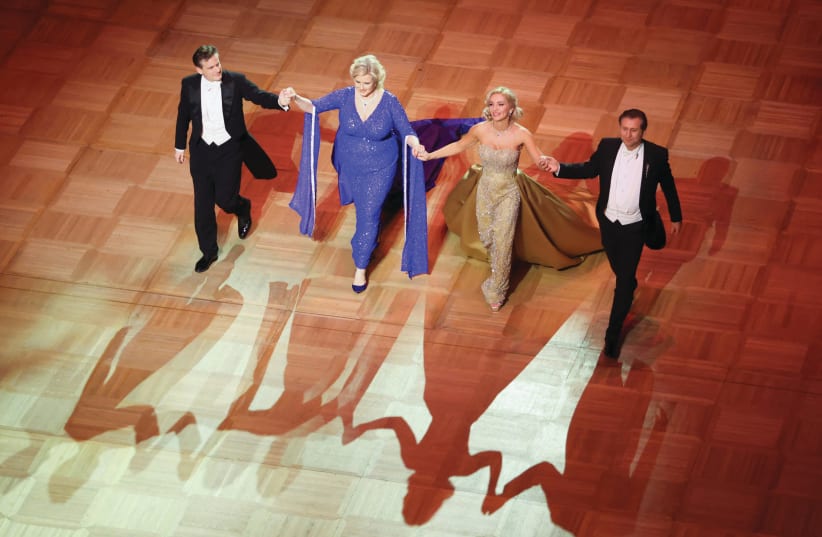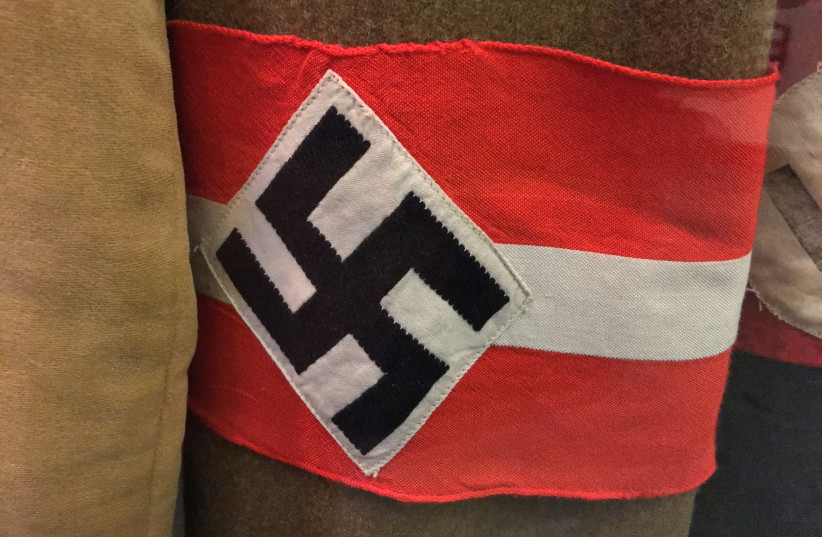There seems to be no end to the tales of bravery and kindness that continue to seep out of the Holocaust era. As the number of living survivors dwindles, it becomes ever more important to chronicle those events, along with the horrific traumatic acts perpetrated by German and Austrian Nazis and their collaborators in countries such as Lithuania, Estonia and Hungary.
Overture of Hope offers something of a left-field take on that dark time. As the title infers, there is music – lots of it – in the narrative, the core of which follows the lives, courage and indomitable spirit of non-Jewish British siblings Ida and Louise Cook.
The Canadian author, Isabel Vincent, is primarily an investigative journalist. It shows. She seems to have left no stone unturned in tracking down historical references and documentation, and verbatim quotations. She appears to have gone down every which research alleyway available to her, to cover all bases and glean any morsel of information that could possibly shed light on the surprising meandering story line.
The Cooks make the unlikeliest of heroines. There is little in their familial or individual backdrop to suggest they would eventually become highly instrumental in rescuing a couple dozen or so mostly Jewish musicians and opera professionals, snatching them from the jaws of the Nazi murder machine at the very last moment.
Who were Ida and Louise Cook?
You could not make up Ida and Louise Cook’s story. The unmarried sisters led fundamentally unspectacular lives. They earned a modest crust in the civil service, and lived with their parents until well into their thirties. While Ida was the more gregarious of the two – she also eventually began writing light romantic novels, and with her much greater earnings used to fund their operatic and, subsequently, philanthropic forays into Nazi Germany and Austria – they were perfectly happy with their humdrum lot, in quiet middle-class London suburbia.
That was until they discovered the glittering world of opera and quickly became besotted with the music, the performances and the megastars. That changed everything. They began traveling to Germany and Austria to catch their idols on stage and – later – in person, and were gradually rudely awakened from their cozy existence. A premeditated aside by Romanian soprano Viorica Ursuleac, a genuine operatic A-lister of the day, led to the sisters getting into all manner of subterfuge and shenanigans in an increasingly perilous and largely successful race against time to save lives.
But Overture of Hope is not just about the Cooks. There are several co-stars in the cast of the real-life drama, including a highly controversial Austrian opera conductor by the name of Clemens Krauss, Ursuleac’s husband. Opinion is divided on the charismatic and gifted opera conductor and impresario who, by all accounts, was a dictatorial taskmaster and oversaw his operations in Austria and Germany with an iron fist.
A confidant of Hitler, he made hay while many of his professional counterparts were ostracized, hounded or murdered. But was this only the result of a Machiavellian drive to make it to the very top of his profession and stay there, come what may? Or was he really a Nazi? Vincent digs deeply into that and, without actually making an explicit judgment herself, her book more than suggests that, while the former is clearly true, Clemens actually did his bit, and then some, to support the Cooks’ rescue efforts.
THE BASELINE of the book – which is substantiated by numerous references to Ida Cook’s own memoir, originally published in 1950 as We Followed Our Stars and reissued in 2008 as Safe Passage – may be the scarcely believable story of the sisters’ clandestine work, but it strays way beyond the titular purview. We also, for example, get an idea of the mood and challenges of street-level life in wartime London, and of the sisters’ giddy admiration for their operatic heroes.
Occasionally, Vincent appears to stray into the realms of historical didacticism, but perhaps non-Jewish or younger readers require a bit of context. In truth, we are also provided with some enlightenment concerning the political dithering of some of the world’s powers at the time, and how that helped paved the way for Hitler’s annexation of Sudetenland and invasion of Poland, which sparked the start of World War II.
Sea of information notwithstanding, Overture of Hope comes across as an intimate account of a simply incredible story. The reader gets to know the Cooks and some of their partners in their lifesaving adventure, and, above all, this is about people. There is a sense of unsullied wonderment, fear, excitement and determination about it all, and the happiness, nay raison d’être, the Cooks found in opera.
Without that, those 29 refugees would probably have gone the way of Hitler’s six million victims.
In 1964, Ida and Louise Cook were honored by Yad Vashem as Righteous Among the Nations; and in 2010, the British government posthumously named each sister a British Hero of the Holocaust. Fitting kudos for a couple of unassuming plucky British women who refused to be bystanders as a tragedy unfolded.
Overture of HopeBy Isabel VincentRegnery History233 pages; $27.99

